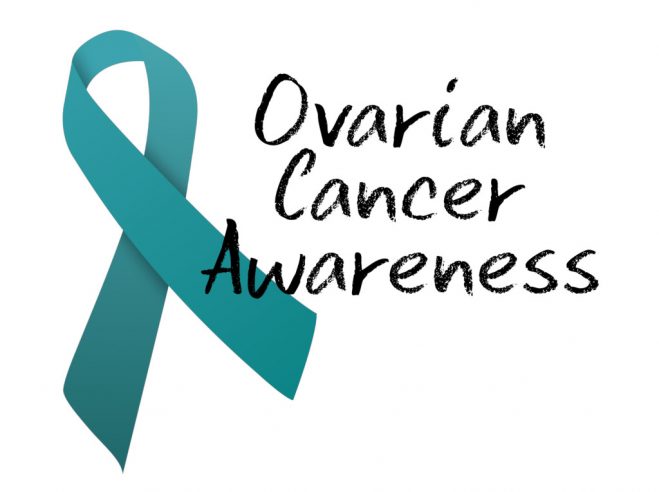Ovarian Cancer Awareness Month And VALTIVE1
1 March 2024
Ovarian cancer awareness month
March is Ovarian Cancer Awareness Month. In this global campaign aiming at raising awareness, promoting research, fundraising, and supporting women with ovarian cancer around the world, we would like to introduce you to the VALTIVE1 study, one of the ovarian cancer trials that the Centre for Trials Research at Cardiff University is running.
When a doctor prescribes a drug to their patient for treating their cancer, neither the doctor nor the patient know for sure if it will work. Some patients may complete the treatment plan, whereas some others will stop it earlier, if their additional symptoms and further investigations show that the tumour has escaped the control of the drug and has started growing. Until then, the patient may go through a number of unpleasant side effects that any cancer treatment inevitably causes.
Would it be good if a test could tell the doctor and the patient whether the prescribed drug is working before the treatment plan is completed or the side effects become unbearable?
In the VALTIVE1 study, we’re studying a blood test (biomarker) in ovarian cancer that may answer this question.
The usual treatment for ovarian cancer is a combination of surgery and chemotherapy followed by a drug called bevacizumab that is administered through an injection for up to a year to keep the cancer under control and delay cancer growth. Bevacizumab works well for some people with ovarian cancer but not for all; it can cause side effects and requires regular trips to the hospital for the administration.
The VALTIVE researchers have discovered a blood test which can tell doctors after a few weeks of starting treatment whether bevacizumab is working or not. These findings need to be checked though before this test is available on the NHS, so the team is running a small study (VALTIVE1), where women being treated with bevacizumab for their ovarian cancer donate their blood samples during routine blood tests that patients have when going to the hospital. If the study confirms the initial fundings, a larger study (VALTIVE2) will be conducted for proving conclusively the value of this blood test.
The advantage for patients is that stopping an ineffective drug early allows alternatives (if available) to be used instead, and saves the patient from multiple visits to hospital as well as the side effects of an ineffective treatment. On the other hand, if the patient’s cancer remains under control at the end of the standard 12 months, we will be able to argue that the patient should be entitled to continue bevacizumab for as long as they benefit.
Chief Investigator: Prof Gordon Jayson, Professor of Medica Oncology, The University of Manchester and The Christie NHS Foundation Trust
Funder: Cancer Research UK
Sponsor: The University of Manchester
Coordinating centre: Centre for Trials Research
IRAS ID number: 285116
VALTIVE1 Team email address: VALTIVE@cardiff.ac.uk
- April 2024
- March 2024
- December 2023
- November 2023
- September 2023
- July 2023
- June 2023
- April 2023
- March 2023
- February 2023
- December 2022
- November 2022
- October 2022
- September 2022
- August 2022
- July 2022
- June 2022
- May 2022
- April 2022
- March 2022
- February 2022
- January 2022
- November 2021
- September 2021
- July 2021
- June 2021
- May 2021
- March 2021
- February 2021
- December 2020
- November 2020
- September 2020
- August 2020
- July 2020
- January 2020
- December 2019
- October 2019
- September 2019
- July 2019
- June 2019
- May 2019
- April 2019
- February 2019
- December 2018
- November 2018
- October 2018
- September 2018
- August 2018
- July 2018
- June 2018
- May 2018
- April 2018
- March 2018
- December 2017
- October 2017
- August 2017
- July 2017
- June 2017
- May 2017
- April 2017
- March 2017
- February 2017
- January 2017
- December 2016
- October 2016
- August 2016
- June 2016
- April 2016
- March 2016
- February 2016